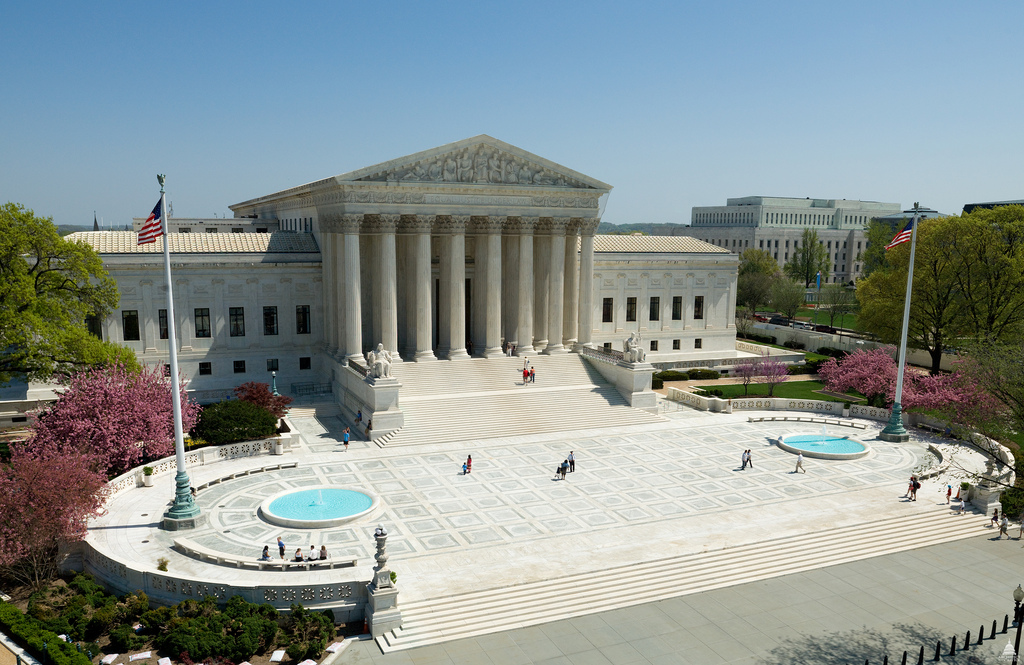The Michigan Supreme Court Wednesday shot down the state attorney general’s high-profile effort to criminally prosecute seven former public officials for their role in the Flint water crisis.
In a series of orders, the court left in place lower court dismissals of the charges, which were thrown out after an earlier Supreme Court ruling found that a prosecution team appointed by Attorney General Dana Nessel had improperly relied on a one-person grand jury to bring charges in 2021.
Wayne County Prosecutor Kym Worthy, appointed by Nessel as co-lead of the state’s prosecution team along with Solicitor General Fadwa Hammoud, had used the unusual tactic, in which prosecutors presented evidence in secret to a single judge to secure charges against multiple former public officials.
Flint Water Crisis Summary
The Flint Water Crisis was a public health crisis that started in 2014 after the drinking water for the city of Flint, Michigan was contaminated with lead and possibly Legionella bacteria. In April 2014, during a financial crisis, state-appointed emergency manager Darnell Earley changed Flint’s water source from the Detroit Water and Sewerage Department (sourced from Lake Huron and the Detroit River) to the Flint River. Residents complained about the taste, smell, and appearance of the water, and many raised concerns about its safety.
However, state and local officials repeatedly assured residents that the water was safe to drink. It was not until 2015, after months of protests and pressure from activists and public health experts, that the state finally admitted that the water was contaminated with lead.
The Flint Water Crisis had a devastating impact on the city’s residents, particularly children. Lead poisoning is especially harmful to children, and can cause a range of health problems, including learning disabilities, behavioral problems, and reduced IQ. An estimated 6,000 to 12,000 children were exposed to lead-contaminated water during the crisis.
The Flint Water Crisis is a story of government negligence and environmental injustice. The city’s decision to switch to the Flint River was made in an effort to save money, but it came at a great cost to the city’s residents. The crisis also exposed the deep racial and economic inequality in Flint, as the city’s predominantly Black and low-income residents were disproportionately affected by the contamination.
Flint Water Crisis FAQs
What caused the Flint Water Crisis?
The Flint Water Crisis was caused by a combination of factors, including:
- The city’s decision to switch to the Flint River as its water source. The Flint River is more corrosive than the Detroit water system, and this caused the city’s lead pipes to corrode and leach lead into the water.
- The state’s failure to properly treat the Flint River water. The Flint River water is more acidic than the Detroit water system, and this required the state to add corrosion inhibitors to the water to prevent lead from leaching into the pipes. However, the state failed to add enough corrosion inhibitors, which allowed the lead to leach into the water.
- The state’s failure to listen to residents’ concerns about the water quality. Residents complained about the taste, smell, and appearance of the water from the beginning, but the state repeatedly assured them that the water was safe to drink.
Who was affected by the Flint Water Crisis?
The Flint Water Crisis affected all residents of Flint, but it was particularly harmful to children. Lead poisoning is especially harmful to children, and can cause a range of health problems, including learning disabilities, behavioral problems, and reduced IQ. An estimated 6,000 to 12,000 children were exposed to lead-contaminated water during the crisis.
- What has been done to address the Flint Water Crisis?
- The state has taken a number of steps to address the Flint Water Crisis, including:
- Switching Flint back to the Detroit water system.
- Replacing lead pipes in Flint homes.
- Providing bottled water and water filters to residents.
- Providing medical care and educational support to children who were exposed to lead-contaminated water.
More Posts

Michigan Court of Appeals – Case Summary People v Bosworth
Michigan Court of Appeals - People v. Bosworth Despite these efforts, the jury found the evidence against Bosworth compelling. In the case of People v. Christopher Mychael Bosworth, the Michigan Court of Appeals rendered a decision on July 18, 2024. Bosworth was...

Michigan Court of Appeals – Case Analysis People v. Jackson
Michigan Court of Appeals - People v MICHAEL JACKSON Several critical legal issues emerged during the trial and subsequent appeals process including self defense claim and witness credibility. In a recent decision by the Michigan Court of Appeals dated July 18, 2024,...

Michigan Supreme Court restores wage and sick leave laws
Citizen-initiated proposals aimed at increasing the minimum wage and expanding paid sick leave In a significant ruling, the Michigan Supreme Court has reinstated the original minimum wage and paid sick leave laws that were initially gutted by the legislature in 2018....

SCOTUS Decision Gives Starbucks a Win in Labor Dispute
The decision underscored the principle that only activities that are essential and directly related to an employee's primary job responsibilities are subject to compensation. In a recent decision by the Supreme Court of the United States (SCOTUS), Starbucks received a...

People v. Bosworth – A Murder Conviction and Its Aftermath
Michigan Court of Appeals: People v. Bosworth The case took a dark turn during the early hours of August 3, 2020. Background and Basic Facts On June 15, 2020, Aquae Keyes was tragically murdered. Jakari Robinson, initially arrested for the murder, was later released...

Cannabis workers claimed employer violated labor laws
Allegedly had to put on company-issued personal protective equipment (“PPE”) (such as masks, hair nets, arm sleeves, gloves, scrubs, and protective shoes) before clocking in Close to 1.2 milion settlement for 134 cannabis workers alleging wage violations under federal...

The MSP is Concerned About Your Privacy (Firearms)
Is the Michigan State Police really concerned about your DNA / biometric privacy?Here's what they say on their websiteThe Michigan State Police (MSP) is committed to protecting the privacy of your potentially personally identifiable data (PPID) in a strong and...

Michigan Supreme Court – Forfeiture of 2006 Saturn ION
FORFEITURE OF 2006 SATURN IONMichigan Supreme Court Ruling - July 25, 2025 The Michigan Supreme Court has ruled that Detroit police can no longer seize cars through civil asset forfeiture unless they can demonstrate that the vehicle was used for drug trafficking.The...

The MSP is Concerned About Your Privacy (Vehicle Information)
Is the Michigan State Police really concerned about your Driver License and Motor Vehicle Information privacy?Here's what they say on their websiteThe Michigan State Police (MSP) is committed to protecting the privacy of your potentially personally identifiable data...

The MSP is Concerned About Your Privacy (Biometric Information)
Is the Michigan State Police really concerned about your DNA / biometric privacy?Here's what they say on their websiteThe Michigan State Police (MSP) is committed to protecting the privacy of your potentially personally identifiable data (PPID) in a strong and...







